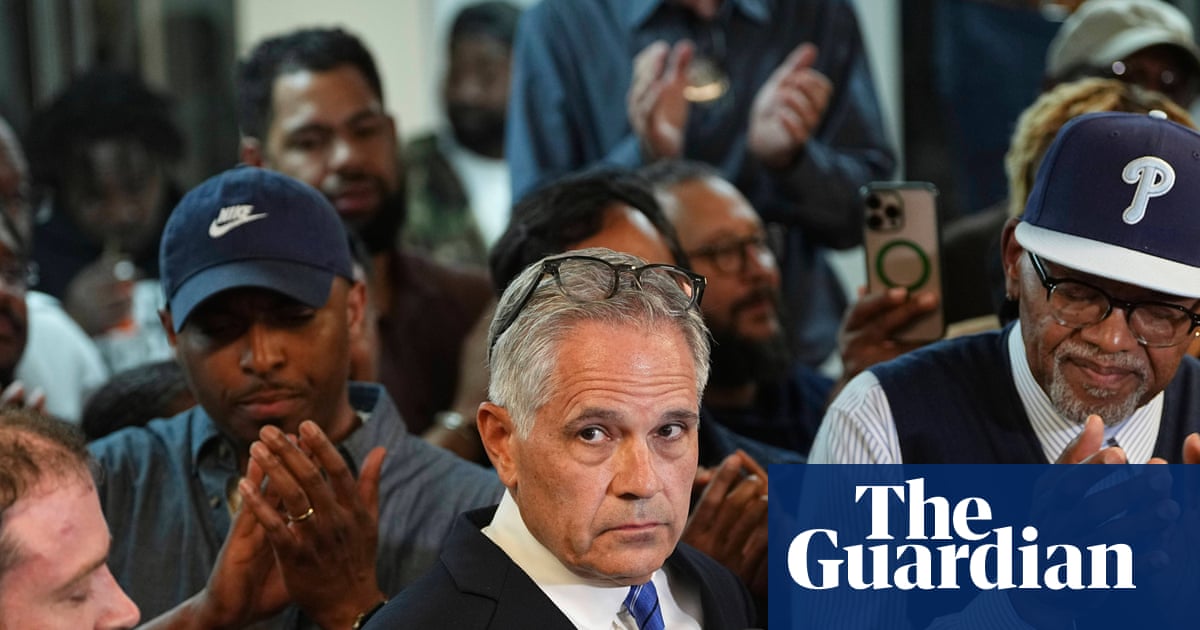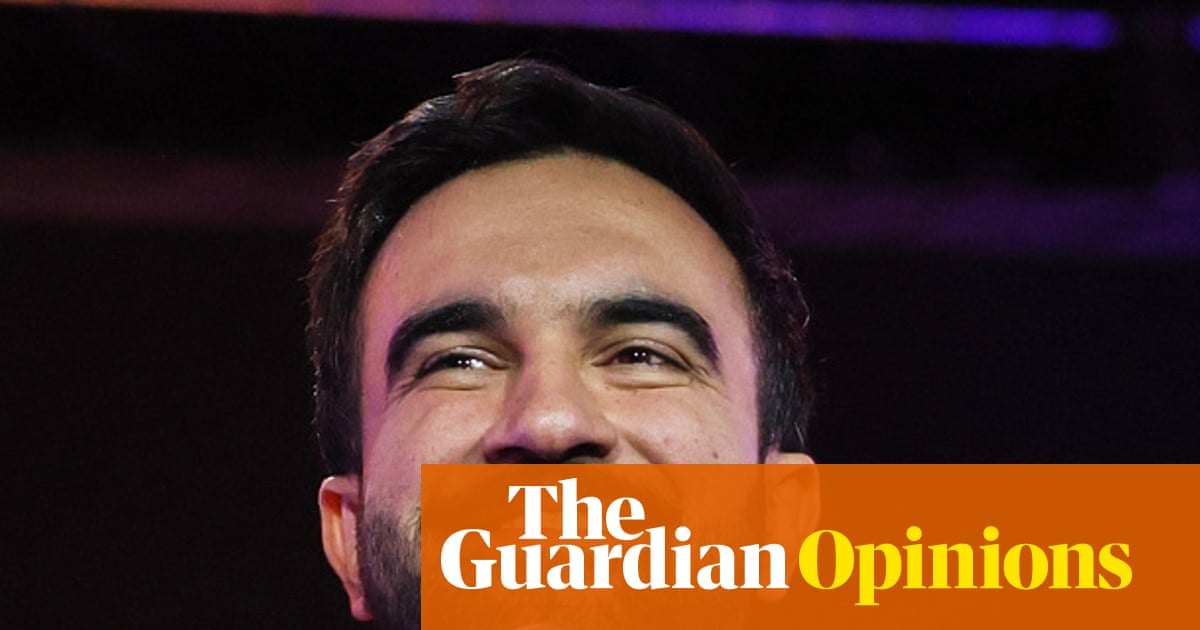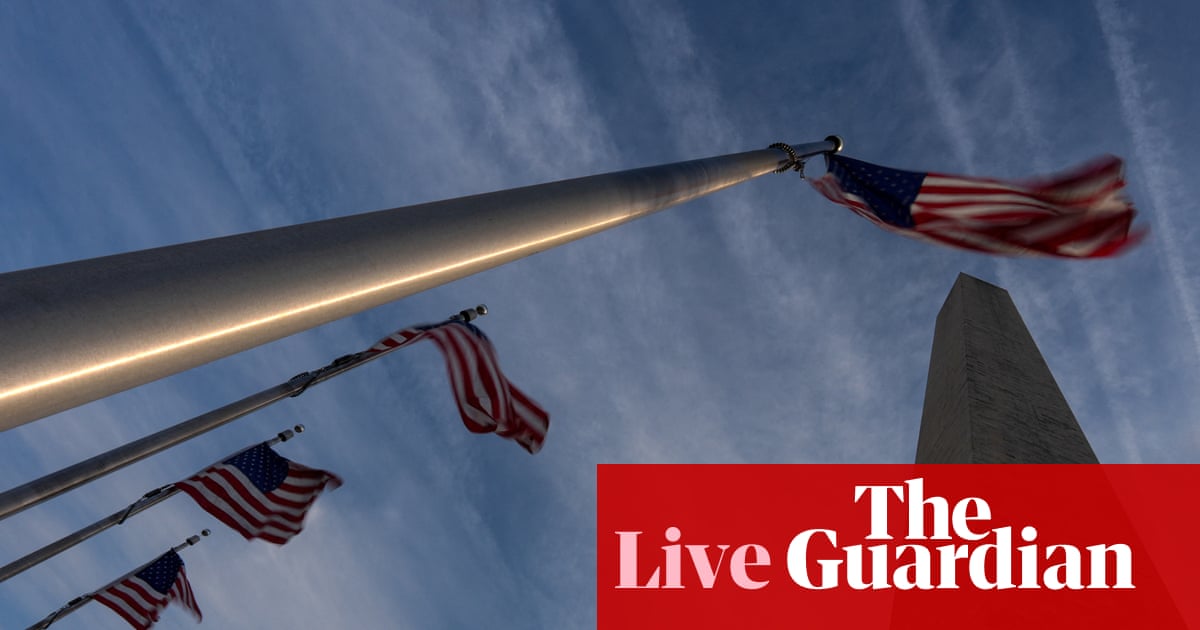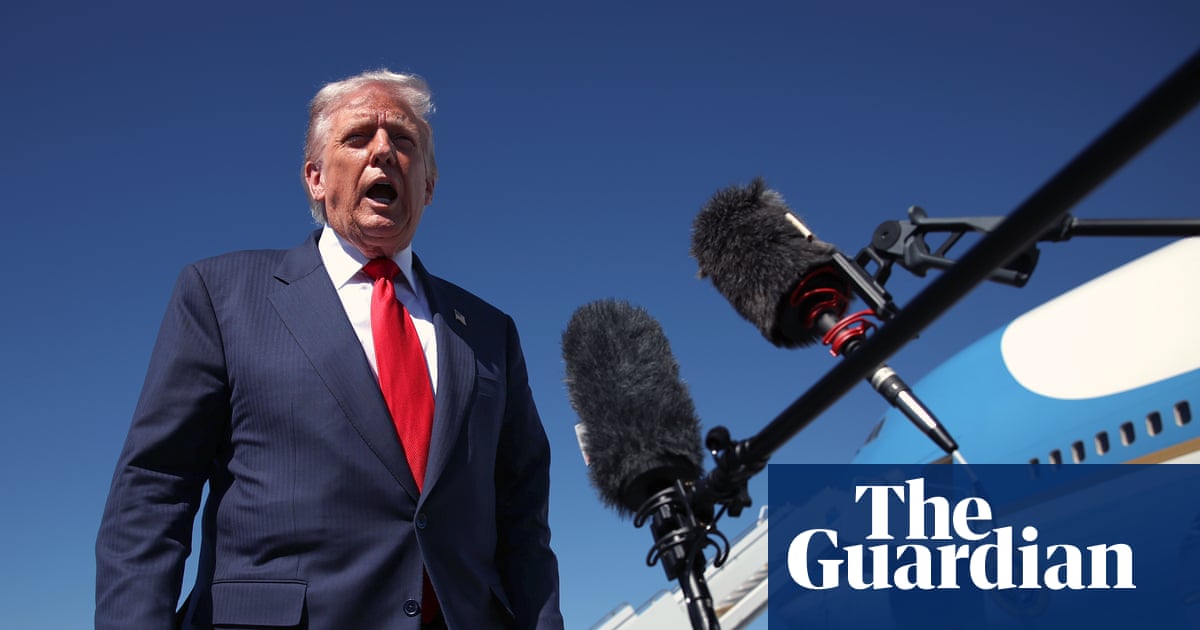During Vermont senator Bernie Sanders’s Fight the Oligarchy tour stop in Michigan, Democratic US Senate candidate Abdul El-Sayed hit on bold populist policies like Medicare For All and taxing the rich.
But he drew among the loudest cheers from the crowd in Kalamazoo, when he bellowed his updated reversal of an Obama catchphrase that signified a new pugilistic tactic when dealing with Maga attacks. “When they go low, we don’t go high. We take them to the mud and choke them out,” he said.
El-Sayed’s fiery speech and his populist campaign in Michigan’s Democratic primary for the Senate race comes on the heels of Zohran Mamdani’s stunning June win in New York City’s mayoral primary, which has generated momentum on the left-wing of the party.
The Sanders-endorsed, anti-establishment El-Sayed, 40, follows a similar blueprint as Mamdani, and Michigan in some ways offers favorable terrain for the leftwing populist playbook. But at the same time a repeat of Mamdani’s success in the more conservative, upper midwest swing state is far from certain, and the race is viewed as a possible bellwether on leftists’ electability in statewide campaigns across the US.
“This is a time when that call for new politics is resonating beyond the places one would expect it to resonate, like in the far reaches of Michigan’s rural communities,” said Yousef Rabhi, a former Michigan House Democratic floor leader who has endorsed El-Sayed. “Abdul and Mamdani are speaking to this moment.”
Like Mamdani, El-Sayed eschews partisanship in favor of leftwing populist economic ideas, sharply criticizes Israel, and leans heavily on a sense of authenticity. In New York City, that formula resonated with younger people, activated disaffected voters and attracted support for Mamdani from across the political spectrum. Mamdani remains strongly ahead in the New York mayoral race
Using that style in Michigan is a break from the moderate Democratic politics that for decades have dominated in the state, and which defeated El-Sayed in 2018 when he lost to now governor Gretchen Whitmer in a gubernatorial Democratic primary.
But since then, El-Sayed has run health departments in Detroit and Wayne county, and touts accomplishments like helping to eliminate $700m in medical debt for local residents.
The economic playing field has also shifted since 2018, and El-Sayed thinks his message is more likely to resonate now than seven years ago. “People now understand Donald Trump was not the cause, but the symptom,” he said during an interview with the Guardian at a Detroit coffee shop.
Moreover, Democratic voters’ frustration with the party is near all time highs, and the left believes there is appetite for outsider candidates, populist economics and criticism of Israel’s war in Gaza. It has boosted El-Sayed, especially in a state that’s home to the uncommitted movement and large Arab-American and Muslim populations.
But there are some crucial differences between El-Sayed’s and Mamdani’s races.
El-Sayed’s opponents are not damaged like Mamdani’s main competitors, mayor Eric Adams and former New York governor Andrew Cuomo. In the August 2026 primary election, El-Sayed faces US congresswoman Haley Stevens, and state senator Mallory McMorrow. The latter is similarly young and critical of party leadership, and has styled herself as an outsider. But McMorrow largely shares the establishment’s economic policy positions and brought on political insiders, like controversial former Cuomo consultant Lis Smith.
Educated, middle-class voters who wanted to vote for an outsider were key to Mamdani’s win. El-Sayed also needs those votes, but they may be split among him and McMorrow, even if the two candidates have substantially different policies and El-Sayed is more truly an outsider, said Josh Cohen, a progressive political analyst who writes the Ettingermentum newsletter.
“The race is not the ideal feel and circumstance in the way that New York was for Mamdani,” Cohen said. An El-Sayed win would suggest voters are concerned with policy, he added. “It would be a very meaningful sign that people’s desire for a shift isn’t superficial.”
Another key difference between McMorrow and El-Sayed lies in Israel policy. El-Sayed calls for an end to “blank check” military aid to Israel and other countries, and uses the term “genocide”. McMorrow, by contrast, has tried to walk a tightrope, calling for humanitarian relief while not using the term “genocide” until October.
El-Sayed’s populist economic proposals include a ban on tax incentives for companies like Amazon, new taxes for billionaires, the elimination of medical debt and a strengthening of anti-monopoly laws to address corporate price gouging.
Though those are leftist ideas, El-Sayed said he avoids the “left-right” label, which might help thread a needle in places like the rural, conservative upper peninsula. Financial pain and its cause are the same everywhere, El-Sayed added, so his focus is on the economic divide, not the cultural or political one.
“It’s the divide between the people who have been locked out and those doing the locking out,” he said. He added that his solutions have broad appeal no matter what they are labeled, and that explains why some Trump voters surprisingly show up for “a guy named Abdul”.
“They didn’t vote for Donald Trump out of a sense of hate for Muslims. They voted for him because of a sense of frustration with the way the system has locked them out,” El-Sayed said. Indeed, the Trump-to-Mamdani voter was a key piece of the story in New York City.
But Mamdani also had built-in help from politically aligned groups who in recent years laid dow campaign and issue infrastructure that was key to his win. No such infrastructure to push these ideas exists in Michigan.
Even if El-Sayed wins the primary, Republicans will try to make the general election about social wedge issues instead of economics, said Jared Abbott, a political scientist and director of the Center for Working Class Politics.
Mamdani and El-Sayed have so far been “very disciplined” in focusing on the “working class’s bread and butter economic issues”, Abbott added, and that would be essential to his overcoming GOP general election attacks.
A win in the general could have an outsize impact on national politics – just as the Squad members’ 2018 midterm wins reverberated into the presidential primary and Biden’s domestic policy, El-Sayed’s election in a swing state could help pull the 2028 presidential race and next president to the left.
“It would be a massive proof of concept that progressives do not [currently] have,” Abbott said.

 German (DE)
German (DE)  English (US)
English (US)  Spanish (ES)
Spanish (ES)  French (FR)
French (FR)  Hindi (IN)
Hindi (IN)  Italian (IT)
Italian (IT)  Russian (RU)
Russian (RU)  2 weeks ago
2 weeks ago
























Comments